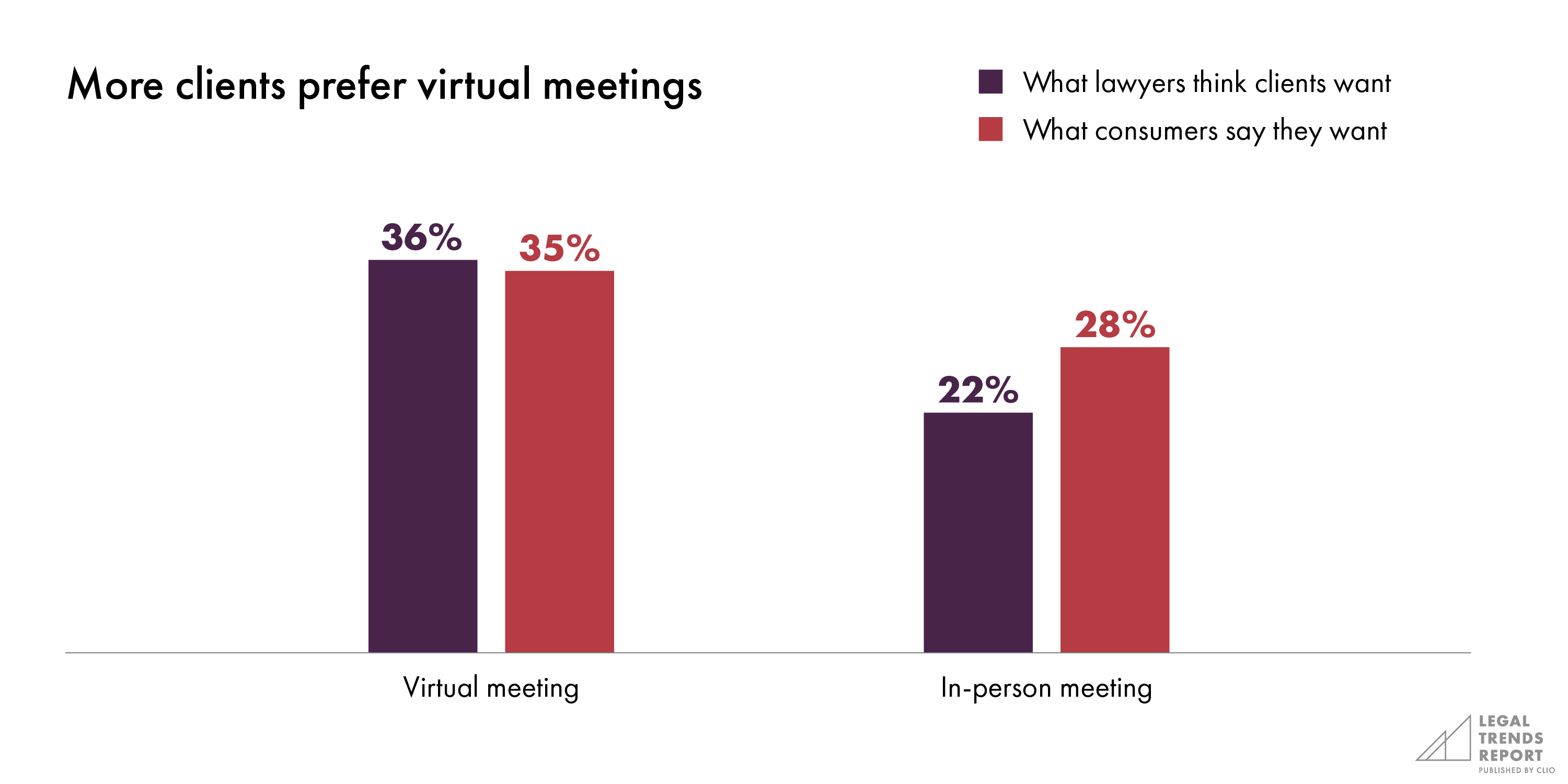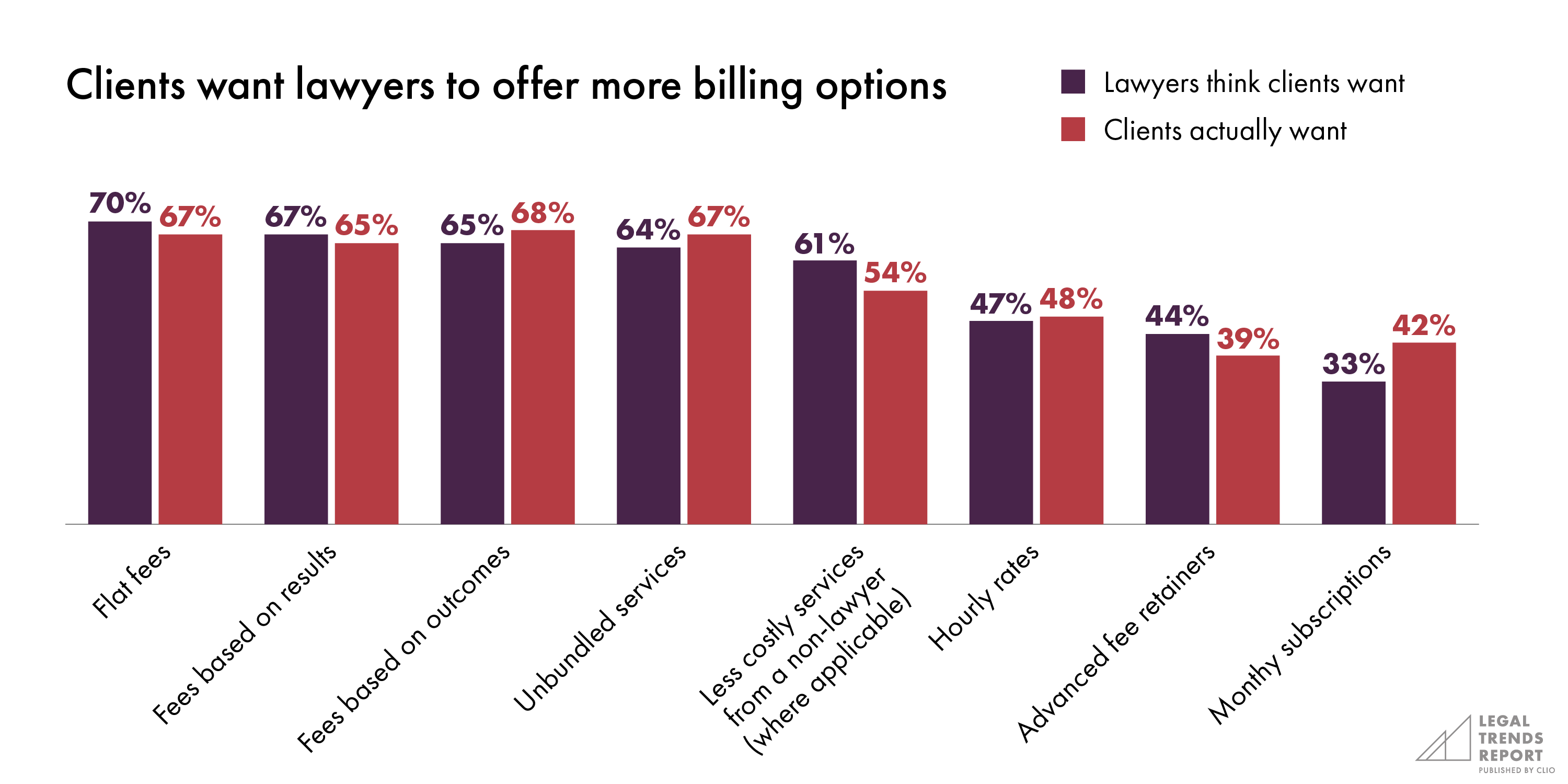Advancements in technology have impacted every industry, from how we socialize to how we work, and even how we obtain information. And the legal industry is no different.
Gone are the days of paper-based files and in-person meetings—legal technology has effectively transformed and modernized the traditional practices of law, such as:
- Streamlined case management
- Electronic payment options
- Online document storage
These are just a few examples. The reality, simply put, is that legal software systems are not just benefiting firms—they are completely transforming how lawyers all around the world practice law.
Read on to learn more about the different types of legal software systems, potential future advances, and how your firm can take advantage of the full range of benefits.
What is Legal Technology?
Legal technology is a type of technology that delivers legal services and supports the legal industry. It typically refers to software instead of traditional hardware like computers, printers, and scanners, as these are not specific to the legal industry.
Most of this technology is usually designed to help attorneys and firms practice law more efficiently. Examples include practice management solutions, litigation technology, and other legal software systems.
What is a legal software system?
A legal software system is a suite of programs that help law firms manage their daily business operations. It differs from on-premise hardware, and helps legal professionals to get more things done, serve clients better, and go home on time.
Examples of legal software systems include:
- Being able to sign documents with e-signatures instead of needing to print and sign everything by hand.
- Legal accounting software that helps accountants keep track of the firm’s finances and cash flow.
- Software that helps run the administrative side of a firm, such as appointment scheduling.
- Document automation and storage
What is litigation technology?
Litigation technology is a piece of software or an application that can help with e-discovery and streamline different aspects of the litigation process. There are many different types of litigation technology—it could be something as simple as using PowerPoint to present evidence or software that makes it easier to manage trial documents.
What is a legal technology professional?
A legal technology professional, or a legal technologist, is an individual who enables firms to use technology to deliver legal services.
These individuals may not necessarily be legal professionals or have a background in law, but they are knowledgeable enough to help firms identify problem areas and solve them with technology.
Legal technology professionals help with a number of areas, such as:
- Implementing a practice management system like Clio.
- Setting up your law firm website.
- Providing online accounting and bookkeeping services.
At larger firms, legal technology professionals are typically part of an IT team that helps manage all of the hardware and software that the firm’s employees use. But, this may not make sense for smaller law firms.
Ultimately, depending on the firm size, it may be more practical to outsource a legal technology professional’s responsibilities to a contractor or agency.
What types of legal software systems do law firms use?
Technology can be a game-changer no matter what size your law firm is. That being said, there are many different types of legal software systems and litigation technology, and each of them can help you handle the increasing demands of your law firm.
Some of these systems offer one service, some offer multiple, and others provide an all-in-one solution. They include:
- Case management software. This kind of system manages each aspect of your law firm. These systems provide a single, cloud-based source of truth where firms can store, access, and manage key client data.
- Billing and tracking software. This software helps lawyers track their hours as effectively and accurately as possible to reach their targets.
- Document management and automation software. This allows law firms to automate document creation with the help of intelligent templates, saving precious time and resources for practices.
- Online payment processing. Incorporating software for legal payment processing makes it easy to pay and get paid. And when it’s specifically for law firms, not a generic payment processor like Stripe or Square, it is compliant with trust accounting rules.
The bottom line is, no matter the size of your law firm, legal software systems can eliminate a lot of inefficiencies and stressors—so long as it’s the right technology and fit for your office.
Want more? We dive deeper into this topic by outlining 6 ways legal technology is used at law firms.
How has technology changed the legal profession?
While technology has slowly been displacing outdated processes over the years, without a doubt, the pandemic of 2020 accelerated the digital transformation of the legal profession.
Nearly four years on, technology continues to revolutionize the way lawyers operate. It empowers them to access firm and matter information on the go, stay in constant communication with clients, and efficiently manage legal calendars for litigation. Moreover, technology enhances a firm’s capacity to adapt to client demands seamlessly, irrespective of a lawyer’s physical location. Here are several key ways in which technology has transformed the legal profession.
Remote meetings
Previously, virtual meetings between legal professionals and their clients were few and far between. As social distancing became prevalent, so did the concept of lawyers interacting with clients via video conferencing.
In fact, according to the 2022 Legal Trends Report, when it comes to remote work, 25% more clients (35% compared to 28%) prefer virtual meetings over in-person meetings— and the rest indicated no strong preference either way, meaning they’re adaptable.
Online payments
Remote meetings weren’t the only preference to change during the pandemic—clients now have higher expectations when it comes to using technology to work with a lawyer, with the same report finding that 40% of consumers would never hire a lawyer who didn’t take debit or credit cards.
Client intake
Firms that are quickest to respond to potential clients—and to make a good impression with relevant and thorough information—are most likely to earn new business. In the 2022 Legal Trends Report, when it comes to hireability, how fast you are able to respond to a potential client weighs heavily in hiring decisions.
Technology can help firms manage and stay on top of important client communications. And specialized legal software systems can help meet the immediate needs of clients and provide a perception of responsiveness, driving a real and sustainable competitive advantage for your firm.
For example, communication features allow firms to manage email and text messaging in a central location. This helps firms keep track of incoming messages while providing an easy way to respond quickly.
As well, legal software that helps you with scheduling can help clients book their consultations instantly, eliminating the need for back-and-forth emails.
Virtual offices
Of course, virtual meetings and payment options aren’t the only ways technology has changed the legal profession.
According to the 2022 Legal Trends Report, research shows that working from home has become more viable. The shift to at-home and virtual settings meant learning new ways to maintain work continuity and collaborate with clients and members of their firm.
Many lawyers are realizing that cloud-based technology enables them to work and stay connected to their firm and their clients from anywhere.
Online payments
According to research from the 2022 Legal Trends Report, 70% of clients are looking for alternative payment methods.
Payment options can ease the burden of a large, one-time payment and increase the affordability of legal services for your clients. When you offer a range of options, it eases the expense for clients—and lawyers have lots to gain by prioritizing the client-centered experience.
A cloud-based legal software system enables firms to offer a range of billing options to clients, and makes it easier and more efficient for firms to manage their billing processes from a central location. Online payment solutions also make it easy to collect payments—and to set up and track automated payment plans for customer bills or retainer deposits and top-ups.
Why is legal technology important?
Legal technology benefits everybody who participates in the legal system—from lawyers, to judges, to clients. Especially when it’s integrated in such a way to support a greater legal operating system.
Lawyers
For lawyers, legal technology is an important part of practicing law more efficiently. Without the ability to store and access documents on the go, a lawyer would need to double back to the office if they found out an important case file was missing after arriving at the courthouse. This scenario could have disastrous consequences, and you can imagine other dreadful situations that would inevitably happen without legal technology.
With legal software systems, lawyers can stay organized and access crucial information they need, from anywhere and at any time.
Judges
Virtual conferencing has not only become normalized between lawyers and their clients but is an effective way for a judge to hold court.
In fact, courts have found that conducting proceedings virtually has led to many efficiencies, one example being removing barriers of availability for experts such as detectives, prosecutors, and witnesses to appear in court.
It also makes it easier for disadvantaged litigants to appear, raising appearance rates and decreasing failure-to-appear rates.
Clients
On the client side, legal technology has made finding, evaluating, and hiring a lawyer much easier. Dedicated lawyer directories help clients narrow down their search by providing information on specialities, practice areas, and even lawyers in their area.
Finally, legal technology provides those who need legal assistance with more (and better) ways to access justice.
For instance, payment options for representation. The people who need legal help aren’t always in a position to afford it. Legal technology increases access to justice by driving an industry-wide shift towards more flexible and convenient legal service delivery.
All of these advantages overlap. Lawyers that practice more efficiently benefit clients, while legal proceedings going virtual benefit all parties involved. Lawyer directories for clients also similarly help lawyers market their law firms.
Legal technology is important to all of these parties and ultimately helps make the legal process (which is known for being quite stressful at times), easier and more efficient.
Final thoughts on legal software systems
Legal technology comes in all shapes and sizes, just like law firms and their respective practice areas. What works for one legal professional may not work for another, so make sure to do a technology analysis first before making a purchase decision on litigation tech.
Legal software systems are a rapidly growing area, and for good reason. While technology adoption in the legal industry has accelerated greatly over the last few years and come very far, there is still work that needs to be done.
Legal professionals should embrace the usage of technology in their processes and how they practice law in order to benefit themselves, staff, and clients.
Looking for legal technology solutions for your law firm or legal team? Read our blog post, the Definitive Guide to Legal Software, for a roundup of some of the industry’s biggest names.
What is the purpose of legal technology?
Legal technology, also known as legal tech, uses technology and software to provide services and support for the legal industry.
What is litigation support?
Litigation support involves providing assistance to legal professionals during different stages of litigation. This includes managing and analyzing large volumes of legal documents and conducting e-discovery. There is a wide range of litigation technology that can support almost all of these areas.




